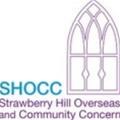Covid-19 has hit Guatemala hard and the numbers affected continue to increase. As of 13th July, there were nearly 30,000 recorded cases and over 1,200 deaths. More than half of Guatemalan households are having difficulty accessing markets and four out of ten families are using coping strategies that leave them worse off, such as depleting their savings or selling some of their assets. To date, 7,876 people, including some who have tested positive for COVID-19, have been deported or expelled back to Guatemala from Mexico and the US. In addition, many families are facing a decline in household income as remittances from abroad decline.
"The Department of San Marcos, where the Projecto Vida HIV hospice facility is located is one of the poorest in Guatemala and Pajapita, the District where I live and work, has one of the highest malnutrition rates in the country. Over 60% of the population works in the informal sector. They have roadside cafes and stalls that usually sell vegetables, soft drinks, fried chicken etc.
Unfortunately, the COVID19 pandemic has brought the local economy to a halt. Travel is restricted; bus transportation has been prohibited and no one is hiring or buying products. Stalls are empty and have been closed since March 13th. People living furthest from town, for example those living near the Hospice, are at the greatest disadvantage and are most in need at this challenging time.
For those working on the large banana and rubber plantations, the situation is even worse. Many have been laid off work and those that continue have had their daily wages reduced by the owners who claim they don't have more to offer them. On enquiring, I found out that on one rubber producing farm close to where we live the owner is paying his workers only $3 a day when the normal wage is $10 a day. How can anyone feed their family on only $3 a day?
Through our telephone chats with people with HIV we have discovered that many families are only eating once a day. This is very serious for the people, many of whom have to take strong antiretroviral medicines everyday and many of the medicines must be taken with food. We have already lost one of our long-term patients through lack of food and subsequent infections. We are desperately appealing to everyone to help us alleviate in a small way the sufferings of so many.
The emergency funds that this campaign raises will be used to help overcome the chronic nutritional deficiencies being experienced by families with HIV in the Pajapita area of southwest Guatemala. Many have lost their jobs and are living in poverty in the rural areas trying to survive from day to day.
If we can raise $5,000 to start with we can feed 180 families affected by HIV for at least a month and meanwhile evaluate the situation for ongoing relief. SHOCC is being asked to contribute to this campaign and we hope to raise at least £1,000; enough for 50 families.
Dee has calculated that a food parcel for a family for a month will cost £20 and will contain the foillowing items:
Maize Flour for Tortillas and tamales £4.50, Rice £4.50, Cooking oil £2, Black Beans £1.50, Pasta (spaghetti etc.) £1.50, Salt £1.50, Sugar £1.50, Oatmeal and Incaparina (childrens porridge drink) £1.50, Chickens for eating once a week £1.50.
Please help us help some of the families living in the Pajapita area.
 Organised by SHOCC
Organised by SHOCC